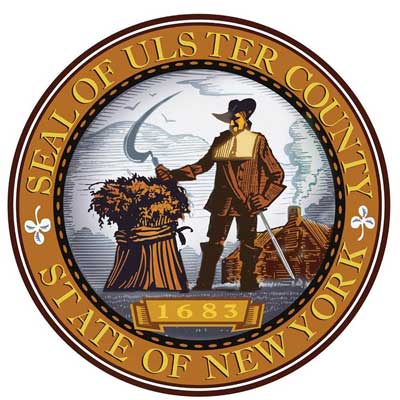KINGSTON – Ulster County Comptroller March Gallagher says that sales tax revenues are down, just as Ulster’s commissioner of Finance, Burt Gulnick, Jr. predicted. The county is currently down 7.23 percent in sales tax receipts for the period of January to June compared to the same period in 2019.
Gallagher says that the county’s top-driving sales tax industries were down 18 percent for the February-April period; the region was in lock down for half of that period. With the most aggressive lock down portion having been lifted, Gallagher says that “people aren’t spending as fully as last year.”
Prior to the start of the pandemic, the comptroller says that sales were strong for January and February, up 5.84 percent over the same period for 2019. The largest sales tax revenue generator in Ulster County is the result of automobile sales. “Automobile sales are 11 percent of all taxable sales in Ulster County and is the top driver for sales tax,” said Gallagher. “Very few car sales occurred between mid-March and April due to the pandemic. This resulted in a substantial number of auto sales in May, which will boost sales tax monies received back from the state. Typically, the sales tax money received from Albany is one or two months after the original transaction.

In a year-to-year comparison, sales tax from automobile dealers collected in the first quarter of 2020 is down 39 percent over the same period in 2019. 2020 revenue for the 2020 sales was just under $54 million compared to $88 million in 2019.
Restaurants and similar establishments have seen a 45 percent decrease in the first quarter of 2020 as compared to the same time in 2019. Travel accommodation tax revenue is down 78 percent.
Not all sales tax generators have been in decline according to the comptroller. The category for “Electronic Shopping and Mail-Order Houses” has generated $61 million in the first quarter of 2020 as compared to $21 million for the same period in 2019, for a total increase of 184 percent. Gallagher said that the way internet sales are taxed changed in 2019, and is called the “Marketplace Provider Tax.” “We are really starting to see the impacts of this so this 184 percent increase is a combination of more people making internet purchases due to the pandemic and more of those purchases being captured for sales tax due to the marketplace provider tax,” according to Gallagher.
Building materials and supplies saw a 10 percent increase in sales tax collected in 2020 when compared to 2019.








